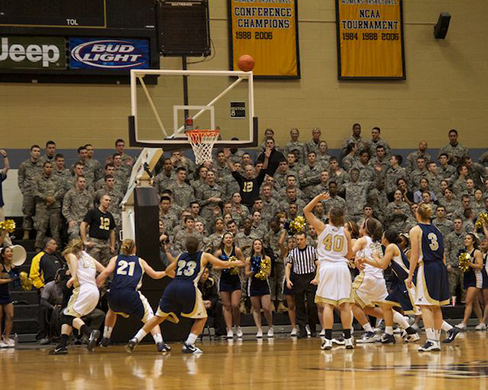| << Chapter < Page | Chapter >> Page > |

Another way in which a group presence can affect our performance is social loafing. Social loafing is the exertion of less effort by a person working together with a group. Social loafing occurs when our individual performance cannot be evaluated separately from the group. Thus, group performance declines on easy tasks (Karau&Williams, 1993). Essentially individual group members loaf and let other group members pick up the slack. Because each individual’s efforts cannot be evaluated, individuals become less motivated to perform well. For example, consider a group of people cooperating to clean litter from the roadside. Some people will exert a great amount of effort, while others will exert little effort. Yet the entire job gets done, and it may not be obvious who worked hard and who didn’t.
As a college student you may have experienced social loafing while working on a group project. Have you ever had to contribute more than your fair share because your fellow group members weren’t putting in the work? This may happen when a professor assigns a group grade instead of individual grades. If the professor doesn’t know how much effort each student contributed to a project, some students may be inclined to let more conscientious students do more of the work. The chance of social loafing in student work groups increases as the size of the group increases (Shepperd&Taylor, 1999).
Interestingly, the opposite of social loafing occurs when the task is complex and difficult (Bond&Titus, 1983; Geen, 1989). Remember the previous discussion of choking under pressure? This happens when you perform a difficult task and your individual performance can be evaluated. In a group setting, such as the student work group, if your individual performance cannot be evaluated, there is less pressure for you to do well, and thus less anxiety or physiological arousal (Latané, Williams,&Harkens, 1979). This puts you in a relaxed state in which you can perform your best, if you choose (Zajonc, 1965). If the task is a difficult one, many people feel motivated and believe that their group needs their input to do well on a challenging project (Jackson&Williams, 1985). Given what you learned about social loafing, what advice would you give a new professor about how to design group projects? If you suggested that individuals’ efforts should not be evaluated, to prevent the anxiety of choking under pressure, but that the task must be challenging, you have a good understanding of the concepts discussed in this section. Alternatively, you can suggest that individuals’ efforts should be evaluated, but the task should be easy so as to facilitate performance. Good luck trying to convince your professor to only assign easy projects.
[link] summarizes the types of social influence you have learned about in this chapter.
| Type of Social Influence | Description |
|---|---|
| Conformity | Changing your behavior to go along with the group even if you do not agree with the group |
| Compliance | Going along with a request or demand |
| Normative social influence | Conformity to a group norm to fit in, feel good, and be accepted by the group |
| Informational social influence | Conformity to a group norm prompted by the belief that the group is competent and has the correct information |
| Obedience | Changing your behavior to please an authority figure or to avoid aversive consequences |
| Groupthink | Group members modify their opinions to match what they believe is the group consensus |
| Group polarization | Strengthening of the original group attitude after discussing views within a group |
| Social facilitation | Improved performance when an audience is watching versus when the individual performs the behavior alone |
| Social loafing | Exertion of less effort by a person working in a group because individual performance cannot be evaluated separately from the group, thus causing performance decline on easy tasks |
The power of the situation can lead people to conform, or go along with the group, even in the face of inaccurate information. Conformity to group norms is driven by two motivations, the desire to fit in and be liked and the desire to be accurate and gain information from the group. Authority figures also have influence over our behaviors, and many people become obedient and follow orders even if the orders are contrary to their personal values. Conformity to group pressures can also result in groupthink, or the faulty decision-making process that results from cohesive group members trying to maintain group harmony. Group situations can improve human behavior through facilitating performance on easy tasks, but inhibiting performance on difficult tasks. The presence of others can also lead to social loafing when individual efforts cannot be evaluated.
Conduct a conformity study the next time you are in an elevator. After you enter the elevator, stand with your back toward the door. See if others conform to your behavior. Watch this video for a candid camera demonstration of this phenomenon. Did your results turn out as expected?
Most students adamantly state that they would never have turned up the voltage in the Milligram experiment. Do you think you would have refused to shock the learner? Looking at your own past behavior, what evidence suggests that you would go along with the order to increase the voltage?

Notification Switch
Would you like to follow the 'Psychology' conversation and receive update notifications?